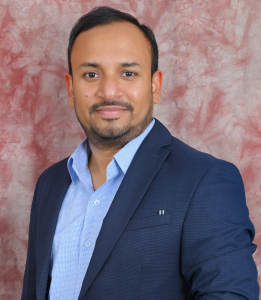
Shivashankar Othy, DVM, Ph.D.
The main goal of Shiva’s research is to uncover the principles of immune regulation at organismal, cellular, and molecular levels. In the long term, this research will guide the development of new and effective therapeutic strategies for infectious diseases, autoimmune disorders, organ transplantation, and solid tumors.
Our immune system is a dynamic network of cells and molecules that constantly protect us from pathogens and preserve tissue homeostasis. On the one hand, failure to mount and maintain a robust response against pathogens/tumor cells can be lethal; on the other hand, the misfiring against self-tissues can lead to >80 autoimmune disorders e.g., multiple sclerosis. Immune responses involve complex biological processes regulated by exquisite networks that operate at multiple scales, spanning centimeter-scale cellular organization to micrometer-sized cell-cell contacts to subcellular signaling events. Therefore, Shiva’ research aims to better understand spatial organization, cell-cell interactions, and cellular signaling in vivo, using a combination of advanced multiphoton imaging, fate-mapped reporters, and functional genetics approaches. Significant contributions are listed below
- Defined the cellular dynamics of effector and regulatory T cells in situ; identified the role of CTLA-for Treg-mediated immune regulation; and proposed a ‘Repetitive Scanning Model’ as the cellular basis of Treg cell functions. [Nat Commun 2015, PNAS 2020, & Cell 2021].
- Co-pioneered the development of a new ratiometric calcium indicator, Salsa6f, a powerful tool to investigate the relationship between calcium signaling, lymphocyte activation states, and cell migration in vitro and in vivo [Elife 2017a & Elife 2017b].
- Discovered that the mechanosensitive Piezo1 channel is a novel target for treating autoimmune diseases while preserving the immune system’s ability to fight new infections; and defined the role of mechanosensing in macrophage functions [Sci Adv 2021 & Nat Commun 2021].
- Developed simplified methodologies to study the role of microglia in the hypothalamus during early life stress using multiphoton microscopy; and calcium signaling in human iPSC‐derived microglia in the context of Alzheimer’s disease [Elife 2022 & Cell Reports 2022].
Currently, Shiva is investigating: 1) Cellular and molecular mechanisms of Treg cells to limit CNS-autoimmunity and promote remyelination; 2) Role of Piezo1-mediated mechanical signals in cytotoxic T cells during viral and tumor immunity; and 3) How adjuvant combinations program adaptive immunity for robust vaccines.
